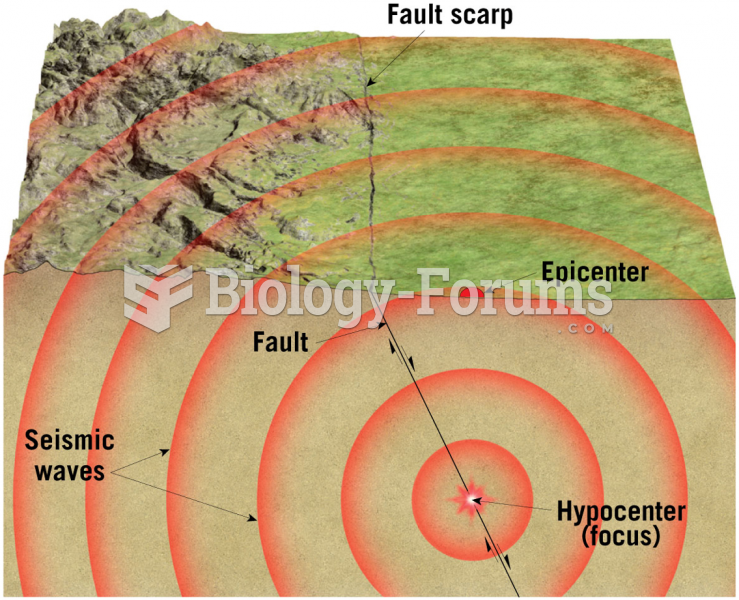|
|
|
Approximately 70% of expectant mothers report experiencing some symptoms of morning sickness during the first trimester of pregnancy.
Liver spots have nothing whatsoever to do with the liver. They are a type of freckles commonly seen in older adults who have been out in the sun without sufficient sunscreen.
Anesthesia awareness is a potentially disturbing adverse effect wherein patients who have been paralyzed with muscle relaxants may awaken. They may be aware of their surroundings but unable to communicate or move. Neurologic monitoring equipment that helps to more closely check the patient's anesthesia stages is now available to avoid the occurrence of anesthesia awareness.
Pope Sylvester II tried to introduce Arabic numbers into Europe between the years 999 and 1003, but their use did not catch on for a few more centuries, and Roman numerals continued to be the primary number system.
Sperm cells are so tiny that 400 to 500 million (400,000,000–500,000,000) of them fit onto 1 tsp.
 Vision with macular degeneration is experienced with an inability to focus in the center of the visu
Vision with macular degeneration is experienced with an inability to focus in the center of the visu
 Antiparkinson Drugs Focus on Restoring Dopamine Function and Blocking Cholinergic Activity in the Ni
Antiparkinson Drugs Focus on Restoring Dopamine Function and Blocking Cholinergic Activity in the Ni





